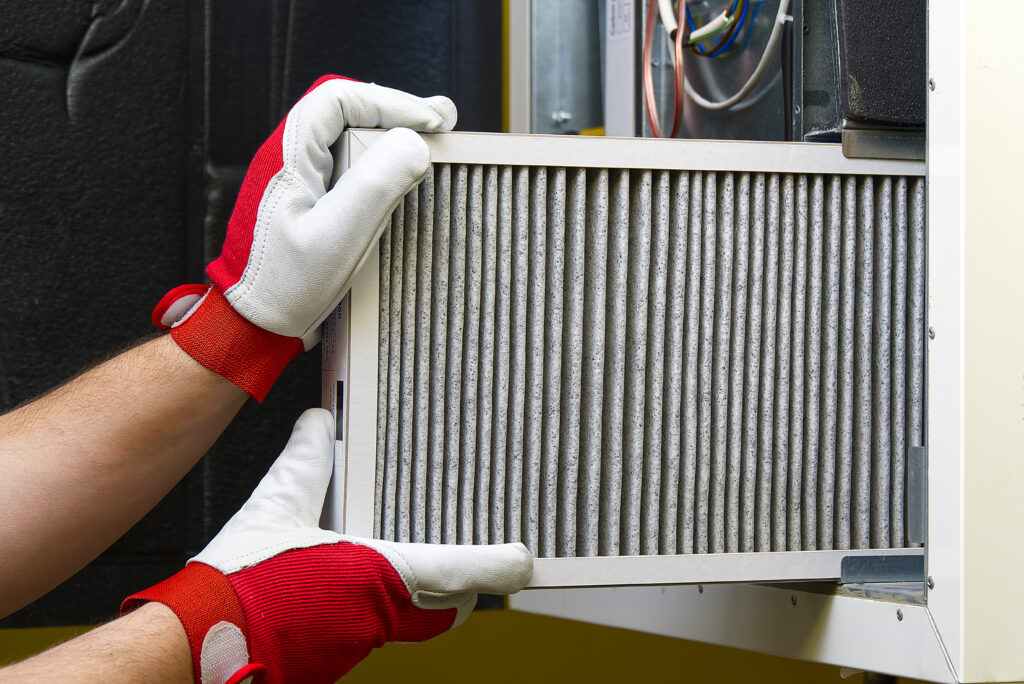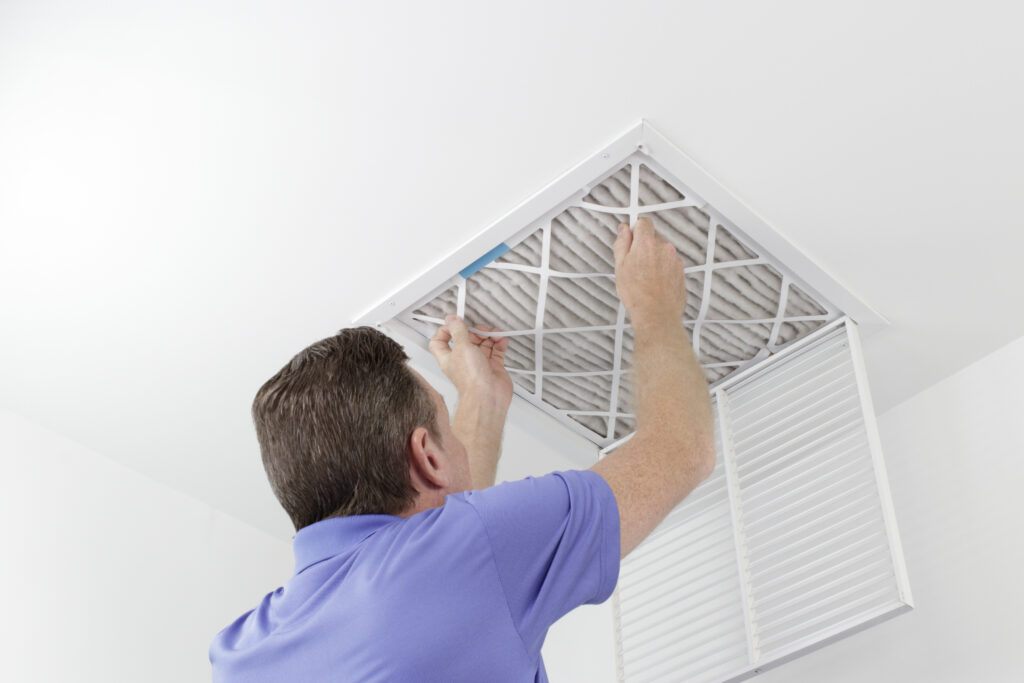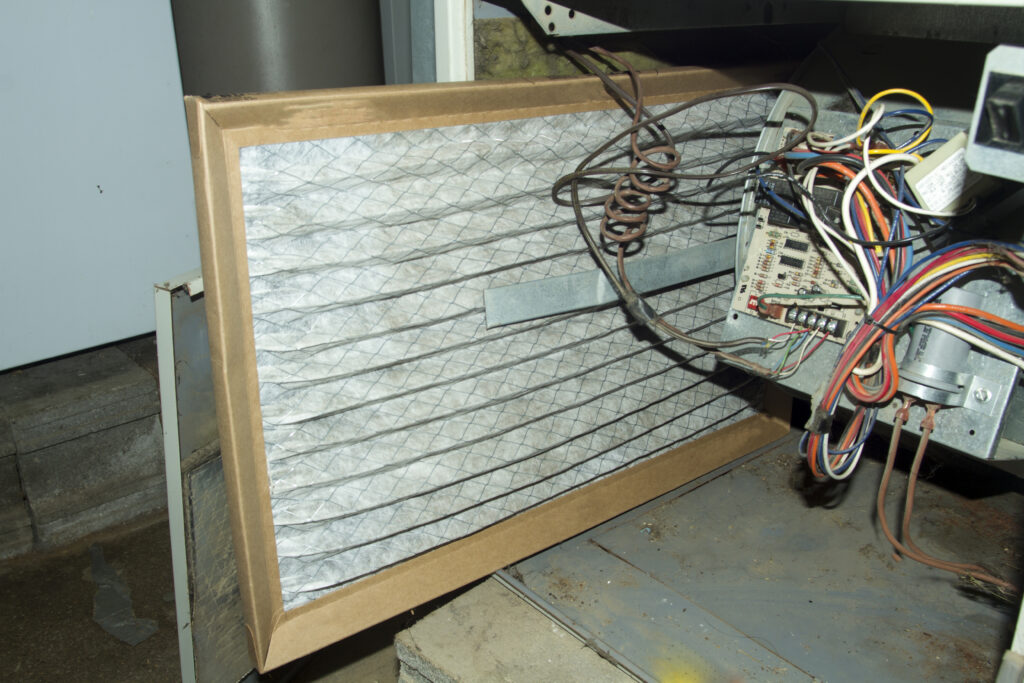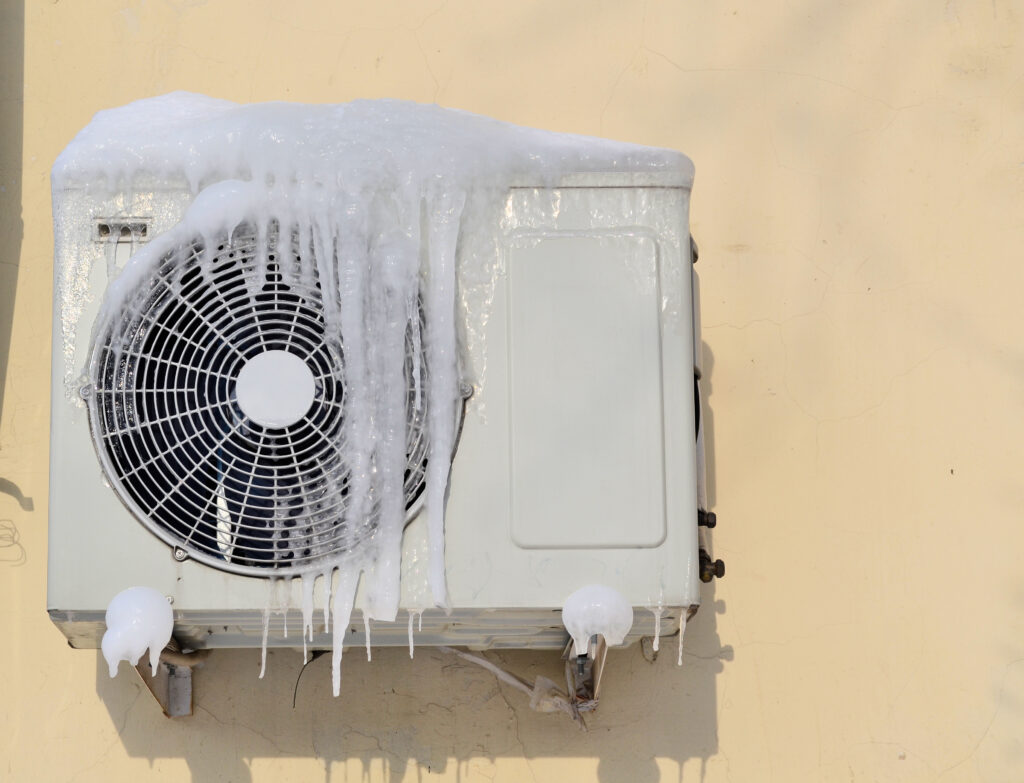Introduction
It can be a hassle to remember to change the filters in your HVAC system or even to install them. Filters are often tucked away in your HVAC system and, when they are out of sight, they are out of mind. You may not even fully understand what they are or why you need them. After all, HVAC filters are such a small part of your HVAC system, so why bother changing them or installing them, anyway? Unfortunately, forgetting to change them or even install them can lead to detrimental consequences for your entire HVAC system. In this blog post, we will be discussing what HVAC filters are, why they are important, and the common problems linked to them. If you have questions after reading this blog post, leave a comment below, and we will try our best to answer them!

What Are HVAC Filters?
HVAC filters are devices that filter particles in the air and clean it. If you look at an HVAC filter, you may notice that it looks like various pieces of square-shaped materials held together by a flexible frame. The material that manufacturers make an HVAC filter out of determines what type of filter it is, such as a fiberglass, pleated, or electrostatic filter. While we won’t be able to get into what the differences are between different HVAC filters in this blog post, HVAC filter differences boil down to quality, expense, and efficiency.
One way to tell a filter’s efficiency is by its MERV rating. The acronym MERV stands for minimum efficiency reporting values. As reported by the EPA, MERVS measures how well a filter catches certain particles. The higher the MERV rating of a filter, the larger amount of particles it can capture. While having a higher MERV rating filter may seem like the best choice, they are more expensive and restrict airflow. Older HVAC systems may not be able to handle higher MERV filters either. While HVAC filters may not look like much, there are many types of them, and they do a lot for your HVAC system.

Why Are They Important?
Without HVAC filters, eventually, your system will fail. While HVAC filters do exist to filter air, they mainly exist to protect HVAC parts. Filters act as barriers for your HVAC parts, protecting them from any debris that might build up in the system. If your system doesn’t have HVAC filters acting as a barrier, then debris will naturally begin to build up inside of it. The debris will cause obstacles for your HVAC parts, forcing them to work harder. Your system will be forced to use more energy, causing your energy bills to go up. In time, your system will overheat, and you will be faced with multiple parts failing or your entire system failing.
Even if you do have filters in your system, problems can still occur if you don’t change them often. We recommend that you change your HVAC filters once a month, although this can vary. For example, the thicker a filter is, the longer you can get away without changing it. A two-inch furnace filter needs to be changed every one to three months, while a four-inch filter needs to be changed every six months. Most filters are one or two inches, however, and that’s why we recommend you change your HVAC filters once a month. You should also change your HVAC filter more often if you own pets, live in a dusty environment, or have any health conditions. While changing your HVAC filter once a month is best practice, we recommend that you change it at least every three months. Not taking care of your HVAC filters can lead to your HVAC system having a lot of problems. Your filter, while small, is an incredibly important part of your HVAC system, after all.

Common Problems Linked to HVAC Filters
While a lot of problems are linked to issues with HVAC filters, there are some problems that are encountered more than others. For example, an excessive buildup of dust, your furnace stop working all together, and your air conditioner freezing up are the most common HVAC problems we see because of issues relating to filters.
- Excessive Buildup of Dust
An excessive buildup of dust in your home can be caused by HVAC filter problems. A dirty filter, or not having a filter at all, are the most common reasons why you may see a surprisingly large amount of dust build up. When a filter becomes dirty, it is no longer able to filter the air as efficiently leading to dust building up. The buildup of dust continues to get worse until the HVAC filter is changed.
- Furnace Stops Working
One of the first questions we ask when we hear that a customer’s furnace has stopped working is, “When is the last time you have changed your filter?” Unfortunately, a lot of times a furnace that stops working can be traced back to a clogged filter. When an HVAC filter becomes dirty enough, not only will dust start to gather around your home, but it will become clogged. As air from inside your home is pulled in and out of your furnace through ducts and heated up, it is filtered through your HVAC filter. When your HVAC filter becomes blocked, it blocks off that air resulting in your furnace no longer releasing hot air. If your furnace stops working, try changing your filter. It may fix your furnace and save you from having to call an HVAC company.
- Air Conditioner Freezes Up
When an air conditioner freezes up, you may not notice it right away. You may just notice that your house is getting warmer and everytime you are trying to turn on your air conditioner, no cold air is coming out of the vents. Air conditioners freezing up is a common problem that can be linked back to a clogged filter. The clogged filter is unable to filter air and blocks the air, causing everything to screech to a halt. Your air conditioner, in return, tries to work harder to produce the cold air to get everything back to normal. Your air conditioner uses refrigerant to cool the air and when it has to work harder, that refrigerant expands more inside of your air conditioner. If it expands enough, it causes your entire air conditioner to freeze up and stop working.
If you think your air conditioner has freezed up, turn it off and wait for one to two hours. After waiting that time, change your air conditioner’s filter. If that fixes the problem, then the clogged filter is what led to your air conditioner freezing up. To prevent it from happening again in the future–and damaging your air conditioner to the point you have to call an HVAC technician–make sure to regularly change your air conditioner’s filter. It will save you money in the long run.

Conclusion
A surprisingly large amount of HVAC problems can be linked to issues with HVAC filters. The importance of HVAC filters is something that is not to be underestimated, after all. In this blog post, we discussed what HVAC filters are, why they are important, and common problems associated with them. Do you need someone to look at your HVAC system or maybe you don’t want to bother with changing your HVAC filters yourself? We can help. If you live in the areas we service, such as St. Louis County and Jefferson County, give us a call! Our number is 636-475-9384. We would be happy to assist you with your HVAC needs.